Farming in 40 hours: As states mandate overtime for agricultural workers, Good Fruit Grower continues to examine the impacts on the fruit industry.
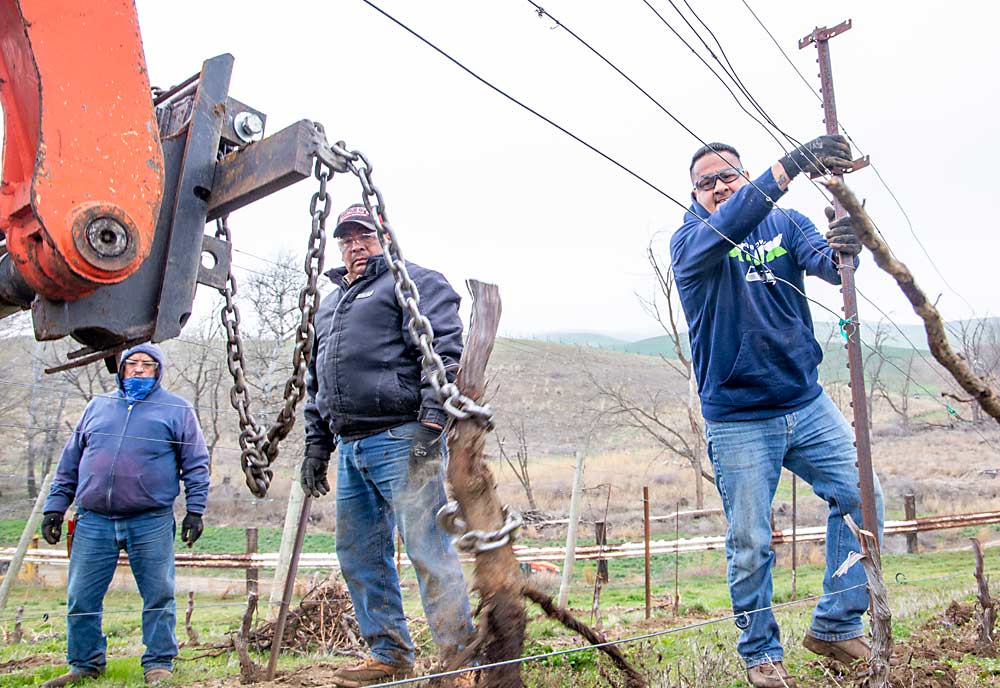
For Brittany Komm and Samuel Sanchez, overtime is not just a concern for a year or two down the road, as the threshold lowers. Washington’s new mandate has already bitten them.
Like most wine grape and tree fruit growers, Komm, Sanchez and other operators at Precept Wine try to avoid letting workers accrue too many hours now that Washington has joined the ranks of states that mandate agricultural laborers be paid time-and-a-half wages for overtime hours, after decades of federal exemption. They are mechanizing, asking winemakers to tolerate shortcuts, adjusting schedules for moonlighting and finding every pocket of efficiency they possibly can.
Still, in early March, after weeks of periodic rain delayed prepruning in Precept’s Walla Walla estate vineyards, the company had little choice but to pay Sanchez and his fellow foreman, Arturo Serrano, extra to complete the job within a favorable weather window. After three full days of supervising work crews, the two men started on a Thursday and drove round-the-clock in 12-hour shifts over four days.
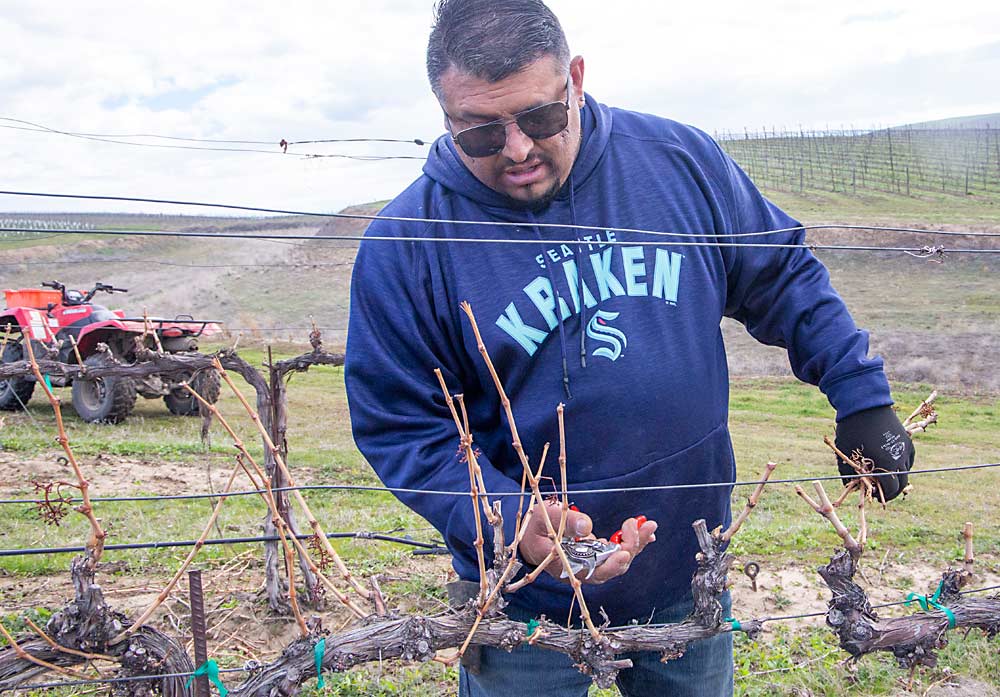
By the time they finished on Sunday afternoon, they had exceeded 55 hours, Washington’s current straight-time ceiling.
“This is the reality of the situation down here,” said Komm, senior viticulturist and vineyard manager.
The same thing may happen during spray season, which in Walla Walla could extend into September. Sanchez has occasionally topped 70 hours a week during his career, he said, especially after rain prevented driving tractors on muddy, steep slopes. As scarce as labor is, it’s even more so for applicators, despite pay increases the company offers for those who become licensed.
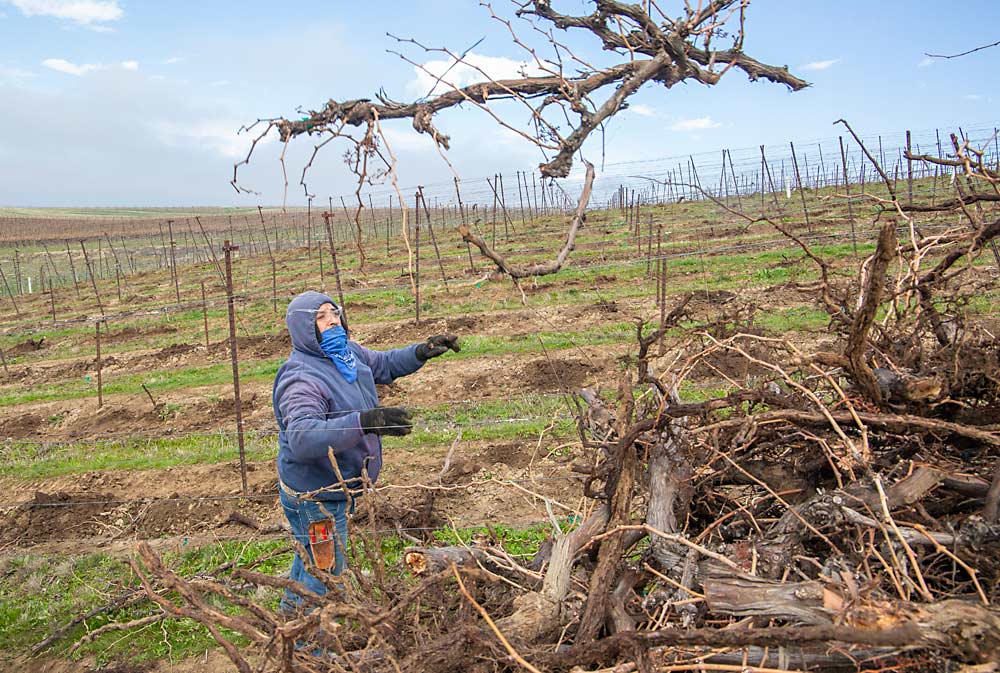
Washington’s overtime threshold will drop to 48 hours in 2023 and 40 in 2024. California and New York also have implemented overtime requirements with similar stair steps. Oregon’s legislature passed an ag overtime mandate this year, though Gov. Kristine Brown had not signed the measure by mid-March, when this issue went to press.
No work-arounds
One idea is to share workers with neighbors.
Don’t do it, warned lawyers and association administrators. At least, don’t coordinate such a swap top-down.
Bosses may accommodate workers who wish to adjust their schedules to moonlight, by creating more shifts, just as a restaurant or retail store would do. But don’t orchestrate the details just to avoid paying overtime, said Sarah Wixson, an attorney for Stokes Lawrence Velikanje Moore & Shore in Yakima, Washington. Federal law expressly prohibits that.
Trying to “MacGyver” out of legal obligations such as overtime probably won’t work, Wixson said.
“I think there’s going to be some hard lessons learned in the next couple years as people test the boundaries of overtime and get in trouble,” she said.
Also use caution when converting employees to salary, Wixson added. In Washington, they must first meet requirements in both wages and duties. This year, salaried employees must make at least $1,014 per week and perform a nonmanual job that involves free exercise of judgement and authority, perform duties that require specialized professional training or supervise more than two people.
The California Fresh Fruit Association sounded the same warning.
“That’s something we have tried to communicate in full to the industry, that there are no work-arounds,” said Ian LeMay, president of the Fresno-based group that represents the state’s tree fruit, table grape and blueberry producers.
Workers in California, where the overtime threshold is at 40 hours for all but the smallest farms this year, are already finding side jobs on their own accord.
At first, the idea alarmed Frank Bavaro, a Central Valley cling peach grower. Crew members asked his blessing to work a few Saturday hours at a neighboring farm earlier this year. These are veteran employees with 15 to 25 years at his farm.
“At first, I was afraid I was going to lose the men,” Bavaro said.
But he didn’t. And the workers came back with a list of names from other farms who wanted to do the same Saturday plan in reverse. He had not taken them up on the offer as of late March.
Bavaro increased the wages of some of his workers, to help them overcome their limited hours and keep up with inflation. He and his family members also have been doing more labor themselves, such as staging machinery and tools at work sites, instead of sending the crews to fetch them. Almost all the tasks, except pruning, are mechanized now, and he constantly seeks ways to boost efficiency.
He advises all growers to do the same.
“You got to get creative, and don’t be afraid to fail,” he said.
Back in Washington
Back in Washington, Lacey Lybeck also is concerned about overtime in the weather-dependent spray season.
“There are some times when it’s a windy spring and there are very few windows to spray,” said the vineyard operations manager for Sagemoor Vineyards.
Lybeck and the company owners are considering sprayers that cover three or four rows at once, instead of just two. Not that equipment prices are coming down; bids on one spray rig jumped from $55,000 to $75,000, since 2019, she said.
The company also may harvest more grapes by machine in the future. Recently, it converted a block to use a Pellenc harvester, changing a job that took about 20 people three days into a job that takes two people one night. The winery has been pleased with the quality, too, Lybeck said.
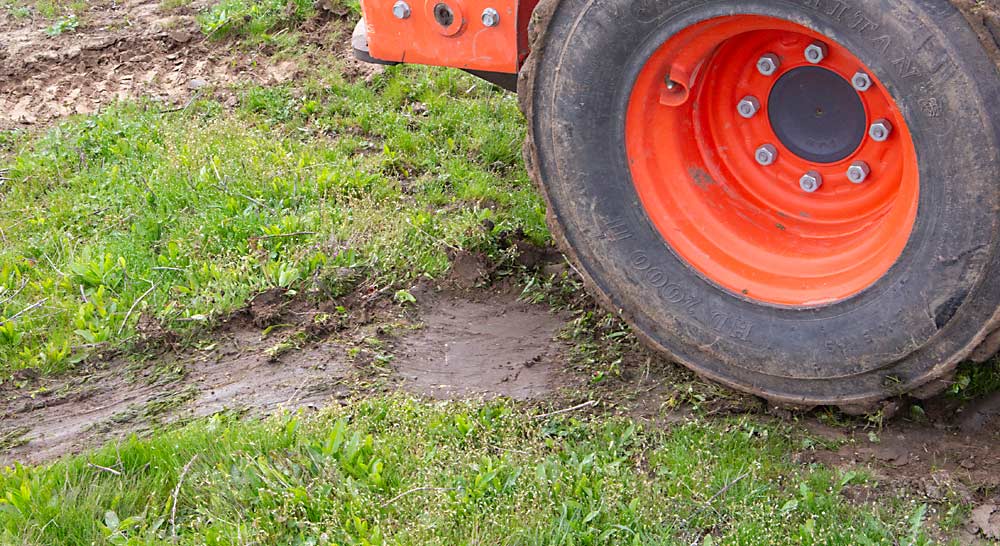
Hour tracking and transparent communication with employees are more critical in the age of overtime, Lybeck said. The company logs employee hours with a PET Tiger system and imports the data into a Microsoft Power BI dashboard that tracks those hours as they happen.
At Precept, owners have recently purchased AgCode, another farm management software that tracks labor and other details, while Komm and Sanchez keep their eyes out for efficiency hacks.
For example, Sanchez came back from a trip to Idaho with the idea to install clips low on vineyard trellis posts, making it easier and faster for employees to move wires, an annual task that otherwise would require stooping and taping near the drip irrigation lines.

As for machines, Komm is considering mechanical shoot thinners or trunk sucker removers. The company already uses mechanical prepruning and mechanical deleafing, though the high-end vineyard gets a lot of hand deleafing, too.
Meanwhile, she intends to communicate about the new reality of labor costs with winemakers, who sometimes expect hand labor that may not be sustainable in the age of overtime.
Komm has been running a cost analysis of shuffling workers between Walla Walla and the company’s vineyards in the Yakima Valley, almost two hours away, though that would involve hotel rooms and mileage reimbursement. She also will try offering a company van for nearby commuters.
Aside from wages and efficiency, Komm tries to get personal when she can, because strong relationships help to keep good workers.
Recently, she convinced Precept to name two blocks after Sanchez and Serrano, employees who have been with the vineyard since it was first planted in 2009. She then printed and framed maps of the ranch for them as gifts.
“They are very underappreciated in our industry, and I like to make them feel appreciated,” Komm said.
—by Ross Courtney

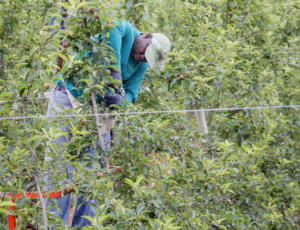
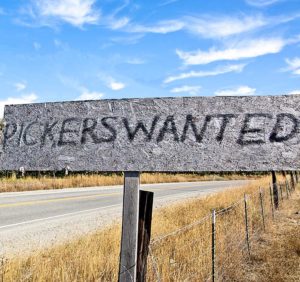
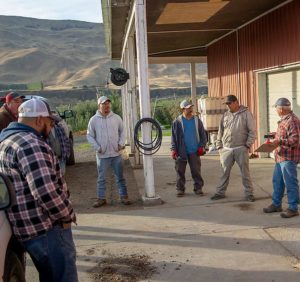





Leave A Comment